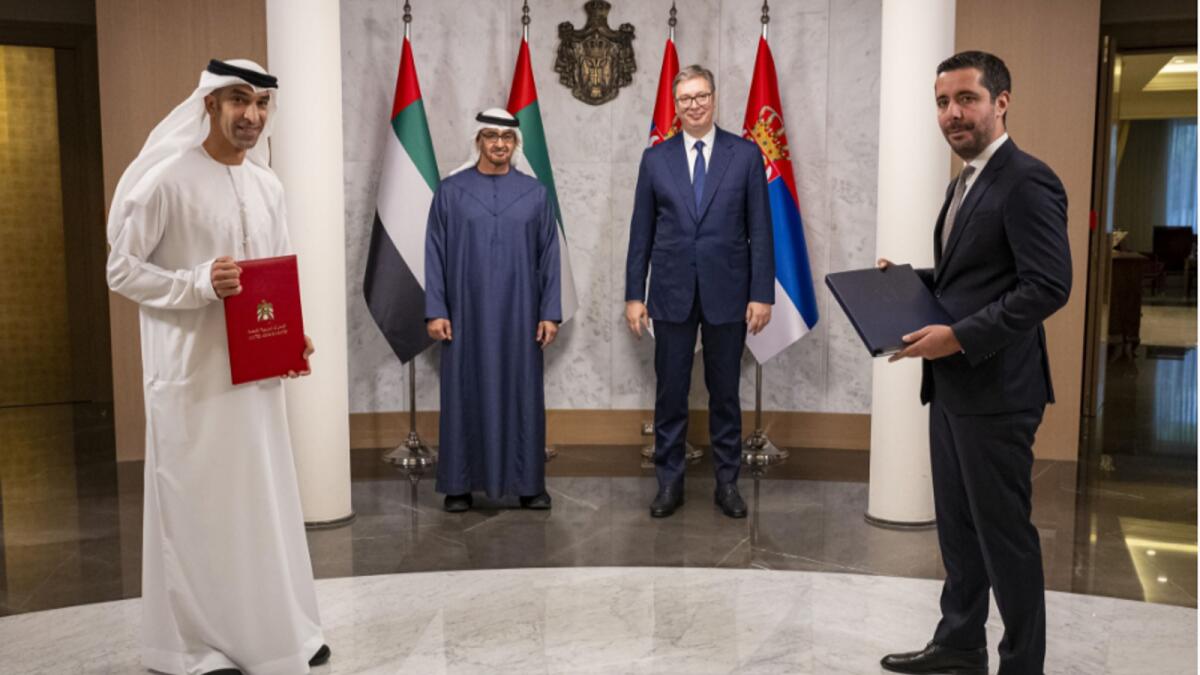The UAE recently signed the Comprehensive Economic Partnership Agreement (CEPA) with Serbia, which is expected to add $351 million to the UAE’s GDP by 2032. This strategic trade deal is the first under the UAE’s comprehensive economic partnership program with a country that is not a member of the World Trade Organization. The agreement aims to boost bilateral non-oil trade to $500 million over the next five years, up from $122.9 million in 2023, while also paving the way for increased trade and investment flows and bilateral private sector collaboration.
President His Highness Sheikh Mohamed bin Zayed Al Nahyan, who witnessed the signing of the agreement in Belgrade, expressed his optimism about the deal, stating that it paves the way for a new era of economic cooperation between the two countries. The UAE’s CEPA program is expected to increase exports by 33%, contributing more than Dh153 billion to the country’s GDP by 2031. The UAE has already signed trade treaties with countries like India, Turkey, Israel, Cambodia, and Georgia, with ongoing discussions with Japan, Malaysia, New Zealand, and Ecuador.
The CEPA agreement with Serbia represents a significant step forward in creating a network of trade agreements that will accelerate investment, promote knowledge-sharing, and create opportunities for joint ventures in high-growth sectors. UAE-Serbia CEPA reflects the shared ambition of both countries to establish a new era of collaboration and unlock sustainable growth for both economies. The Serbian President Aleksandar Vučić also expressed confidence in the agreement, expecting new opportunities in economic cooperation and diversification that will foster sustainable growth and prosperity for both nations.
Once implemented, the UAE-Serbia CEPA is expected to remove or reduce duties on product lines, lift trade barriers, protect intellectual property rights, support small and medium-sized companies, and facilitate mutual investment flows. The agreement between the UAE and Serbia features a tariff elimination of up to 96% across customs tariff lines compared to agreements with WTO member countries. It is anticipated to significantly increase non-oil trade between the two friendly nations, serving as a vital bridge to the Balkans and Southeast Europe with vast economic potential.
The UAE is Serbia’s largest trading partner among the Gulf Cooperation Council countries, accounting for 55% of Serbia’s trade with Gulf nations. Additionally, the UAE is the third-largest market for Serbian exports in the Middle East and the fourth-largest trading partner for Serbia among Arab countries and Africa. Foreign Direct Investment between the UAE and Serbia has increased in priority sectors such as renewable energy, agriculture, food security, infrastructure, and logistics services. The CEPA agreement reflects the mutual ambition between the UAE and Serbia to launch a new era of bilateral cooperation and stimulate sustainable growth in both economies.
In conclusion, the UAE-Serbia CEPA marks a significant milestone in the economic relations between the two countries, providing a framework for increased trade, investment, and collaboration. The agreement is expected to have a positive impact on both nations’ economies, fostering sustainable growth and prosperity for their citizens. With the removal of trade barriers and the facilitation of investment flows, the UAE and Serbia are poised to enter a new era of economic partnership that will benefit various sectors and contribute to long-term bilateral cooperation.










